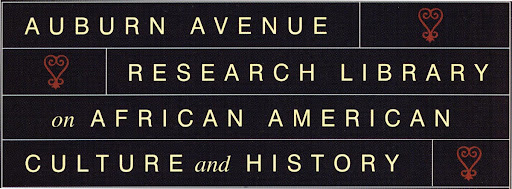One of the greatest frustrations I encountered as a genealogical researcher twenty years ago concerned access to vital statistics and other records. Travel outside of my locale was not only difficult, but not an option. Later, as a graduate student, most of my research involved reviewing records on microfilm and requesting books through interlibrary loan. Now technological advances allow researchers to access resources online, sometimes from the comfort of home. Times have changed.
During the summer of 2010, I participated in an Advanced Archives Practicum hosted by the Auburn Avenue Research Library for the University of West Georgia. In addition to assisting with processing the James Bryant Smith Collection, I conducted research for entries on Drs. Eliza A. Grier and Henry Rutherford Butler that will be submitted to the New Georgia Encyclopedia. Whether you are tracing your family’s history or conducting research, the availability of online digital collections and databases opens doorways to information that once seemed difficult to find and was time consuming to research.
The life of Dr. Eliza A. Grier provides one example. Grier was the first African American woman to receive a license to practice medicine in Georgia in 1897, following her graduation from Woman’s Medical College of Pennsylvania (now Drexel University College of Medicine) that year. News of her licensure traveled as far west as Utah and as far north as New York. Grier’s career as a doctor of obstetric and gynecological medicine ended abruptly, however, when she fell ill in 1901 and later died in 1902. All of this information I found with ease in online databases of historic newspapers and through digital collections. (Pictured left is a graduation program from Fisk University, where Grier graduated in 1891. She later attend the Woman’s Medical College of Pennsylvania. Courtesy of AARL.)

Another example is that of Dr. Henry Rutherford Butler, Sr, who practiced general and pediatric medicine in Atlanta in the late nineteenth and early twentieth centuries. One of the first African Americans to receive a medical license in Georgia, Butler and a former classmate, Dr. Thomas Heathe Slater, owned and operated the Butler and Slater Drug Store, the first pharmacy in Atlanta that catered to African Americans. Additionally, Butler served as a Grand Master of the Prince Hall Affiliation of Masons for the State of Georgia. Again, this brief biographical sketch was obtained from information found in online databases and collections and in a relatively short amount of time. (Pictured right is a Father's Day card given to Butler from his son, Henry Rutherford Butler, Jr, in 1927. Courtesy of AARL.)
For researchers, times have truly changed – and for the better.
Posted by Sarah Middlemast, University of West Georgia



